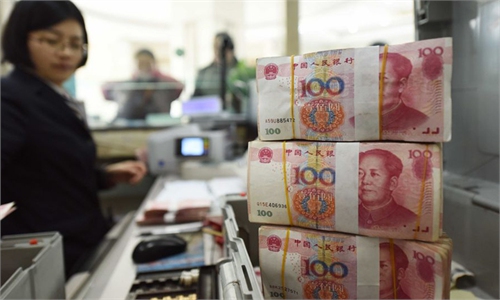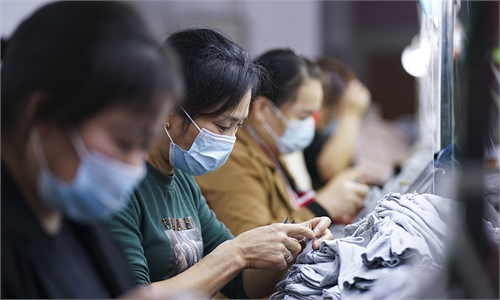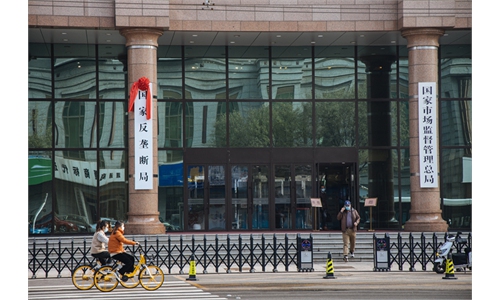
Customers choose products at a duty-free shopping mall in Haikou, south China's Hainan Province, July 2, 2021. Photo:Xinhua
China announced on Monday rental reductions or exemptions for small and micro-sized firms as well as individual businesses and industries suffering an outsized impact from the COVID-19 pandemic, in a bid to cut their operating costs and bolster the country's economy.
In 2022, small and micro-sized service enterprises and individual businesses that are located in the medium and high risk areas of the epidemic and rent property from centrally-administered state-owned enterprises (SOEs) will be exempted from rent for six months in the year, with rent in other areas reduced for three months, according to a circular issued on Monday by China's state-asset regulator - the State-owned Assets Supervision and Administration Commission (SASAC).
"The service industry is an important part of the national economy. Small and micro-sized service enterprises and individual businesses in the service industry play an important role in supporting the market, promoting employment and maintaining economic stability," the regulator said, noting that those entities are facing additional financial stress due to the impact of recent COVID-19 flare-ups across China.
The SASAC urged all centrally-administered SOEs to promptly study and determine the specific implementation rules governing rent reduction and exemption policies with a view to fast tacking implementation, so as to enhance the benefit provided to businesses as soon as possible. .
The number of small individual businesses in China, which account for two-thirds of the country's market entities, reached a record high in 2021, surpassing the 100 million mark, providing 276 million jobs, data from the State Administration for Market Regulation (SAMR) showed in January.
As of the end of 2021, the number of China's registered individual businesses and industries reached 103 million. Among them, 90 percent were concentrated in the service sector, mainly in wholesale and retail, accommodation, catering and residential services.
The SASAC move is part of the country's efforts to support small and micro businesses hurt by the pandemic. The country has unveiled a host of measures to support small businesses, including increasing loans, lowering financing costs and offering tax breaks.
China is set to boost its value-added tax (VAT) refunds in the latest tax and fee reductions to ease the burden on businesses and shore up the vitality of market entities, Xinhua News Agency reported on Friday.
Total VAT refunds will reach approximately 1.5 trillion yuan ($235 billion) this year, with priority given to micro-sized and small firms and the manufacturing industry, Vice Minister of Finance Xu Hongcai told a press conference on March 23.



